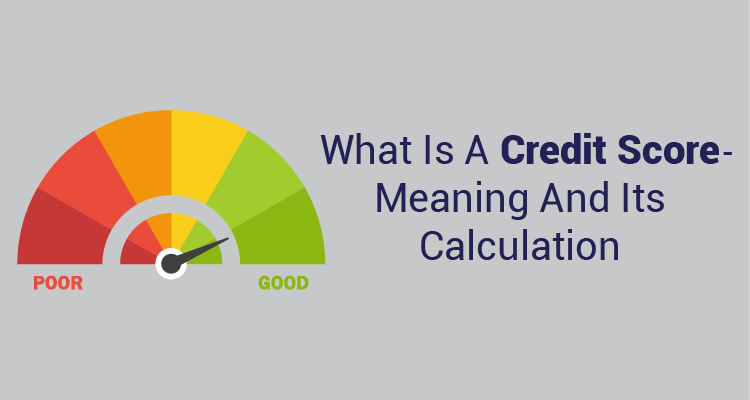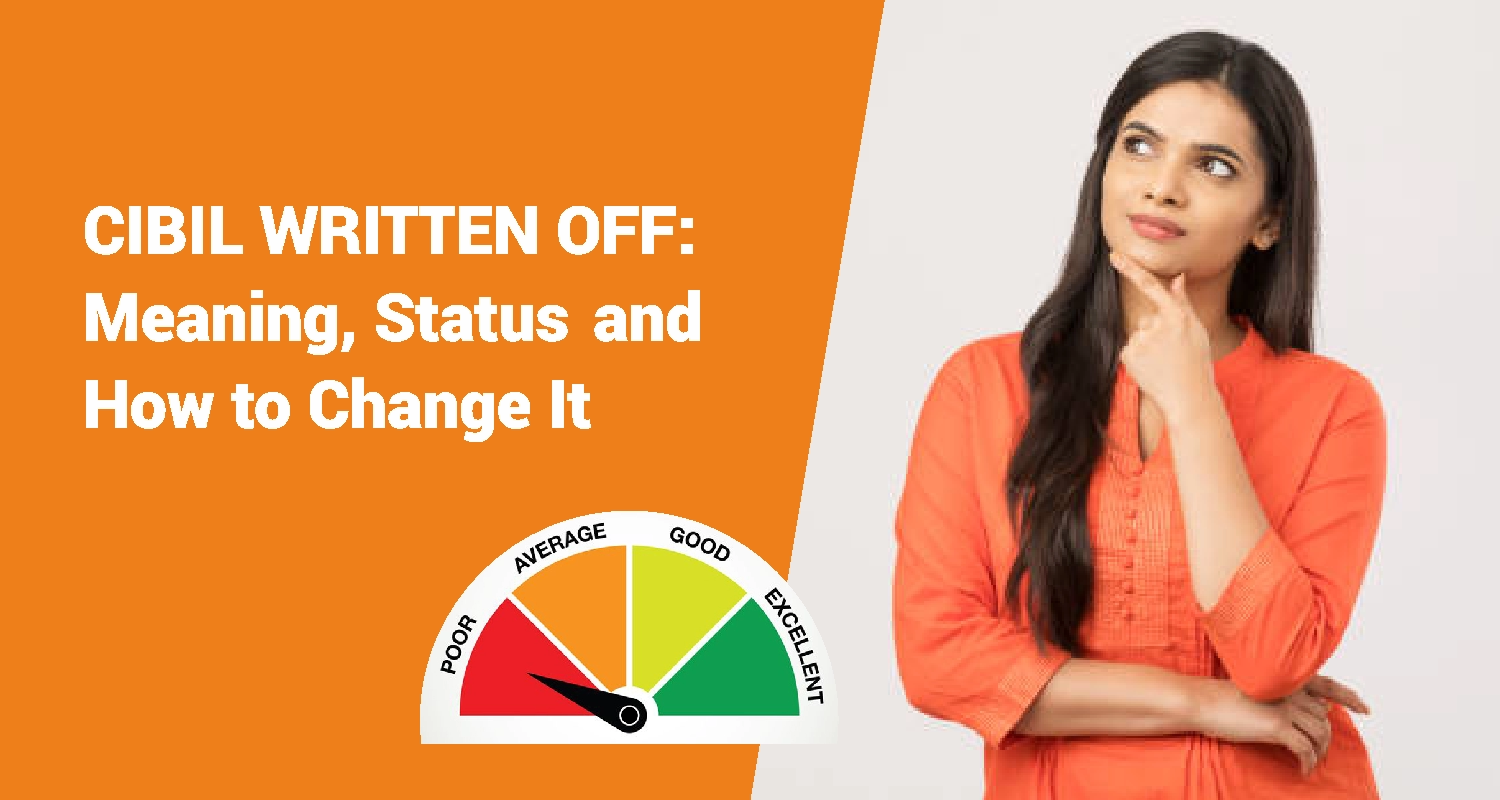What Is A Credit Score - Meaning And Its Calculation

The credit score, also commonly known as a CIBIL score, is a key factor in determining the terms and rates of interest of a loan, especially unsecured credit such as a personal loan that does not have collateral attached to it.
The credit score is commonly known as CIBIL score as it has become synonymous with the company that initially began generating credit scores in India, despite the fact that now there are a number of agencies that compile credit scores such as Equifax, CRIF Highmark, and Experian.
The CIBIL score is a three-digit number that is determined by independent, private organisations that study a person’s previous loans, including credit card debt and other borrowings, and repayment history. Broadly it is derived by considering a person’s credit and repayment history, particularly over the previous 36 months.
CIBIL score ranges from 300 to 900. The closer the number is to 900, the higher is the likelihood of the loan application being approved.
A high credit score suggests that the borrower has been extremely prudent with their funds, paying off all or most of their debt, including credit card debt, on time and in full, with no or few defaults. For a lender, these people make good borrowers.
A low credit score, on the other hand, tells the lender that lending money to that person is a risky proposition because it shows that the borrower has either neglected or missed certain loan installments.
Customers can obtain credit reports and credit ratings from credit information bureaus such as Equifax India and CIBIL, both of which credit reporting agencies are among the four credit data companies licensed to provide such services in India. The other two licensed credit reporting agencies are Experian and High Mark.
Such agencies collect and record client credit-related activity. The data is then analyzed to develop credit scores and credit reporting summaries for the consumers.
Even if a person does not have a loan but uses one or more credit cards, their score is still determined by how they have used and repaid those cards in the past. Typically, lenders will approve loans with a score of 750 or higher; the higher the score, the better.
However, the silver line in the case of a low credit score, is that the CIBIL score is dynamic and not a static figure. This means that by adopting good practices one can gradually raise their credit score over a period of time for future loans.
How Is Credit Score Calculated?
For the purposes of calculating credit scores, each credit bureau has its own methodology and algorithm. It is calculated after taking into account variables including payment history, credit usage, credit age, and credit type. Some factors that influence the credit score are:
Payment History:
This is one of the most important factors that determine the credit score. If one has consistently paid their bills and loans, it demonstrates that they are a trustworthy borrower and have a smaller default risk. And if one continues to follow good credit practices, they are more likely to be qualified for preferred loan terms and quicker application approval. If the credit history has late payments or missed payments, the credit score will drop significantly.Credit-Utilisation Ratio:
This measures how much debt one has compared with their available credit limits.Length Of Credit History:
Lenders are keen to know how long the potential borrower has been using credit. While on one hand, long credit history is beneficial but is not of prime importance as those with shorter history may show that they don’t owe too much.New Credit:
It shows the loan accounts that one has applied for recently and the last time a new account was opened. If a person has many knew accounts it may show that they are having financial issues and plan on taking a lot of new debt.Types Of Credit In Use:
Another factor in determining the credit score is how many credit accounts one has and whether the different types of credit one has, such as credit cards, store accounts, installment loans, and mortgages.Conclusion
Lenders like IIFL Finance lay a lot of emphasis on the credit histories of their borrowers. While applications of people with lower CIBIL scores may be considered and approved, an ideal CIBIL score is 750 or above.
A good lender can also offer the most competitive interest rates to their clients as long as they have a clean credit history and have had no past record of late repayments or defaults on their loans.
As credit score is a key parameter for the approval of a loan on desirable terms, checking the credit score periodically is a good idea, however, it is important to use authorised websites such as IIFL. IIFL Finance makes it easy for one to check the credit score. One just needs to fill out a short form, and the credit score will be fetched from CIBIL instantly and for free.
Disclaimer: The information contained in this post is for general information purposes only. IIFL Finance Limited (including its associates and affiliates) ("the Company") assumes no liability or responsibility for any errors or omissions in the contents of this post and under no circumstances shall the Company be liable for any damage, loss, injury or disappointment etc. suffered by any reader. All information in this post is provided "as is", with no guarantee of completeness, accuracy, timeliness or of the results etc. obtained from the use of this information, and without warranty of any kind, express or implied, including, but not limited to warranties of performance, merchantability and fitness for a particular purpose. Given the changing nature of laws, rules and regulations, there may be delays, omissions or inaccuracies in the information contained in this post. The information on this post is provided with the understanding that the Company is not herein engaged in rendering legal, accounting, tax, or other professional advice and services. As such, it should not be used as a substitute for consultation with professional accounting, tax, legal or other competent advisers. This post may contain views and opinions which are those of the authors and do not necessarily reflect the official policy or position of any other agency or organization. This post may also contain links to external websites that are not provided or maintained by or in any way affiliated with the Company and the Company does not guarantee the accuracy, relevance, timeliness, or completeness of any information on these external websites. Any/ all (Gold/ Personal/ Business) loan product specifications and information that maybe stated in this post are subject to change from time to time, readers are advised to reach out to the Company for current specifications of the said (Gold/ Personal/ Business) loan.



